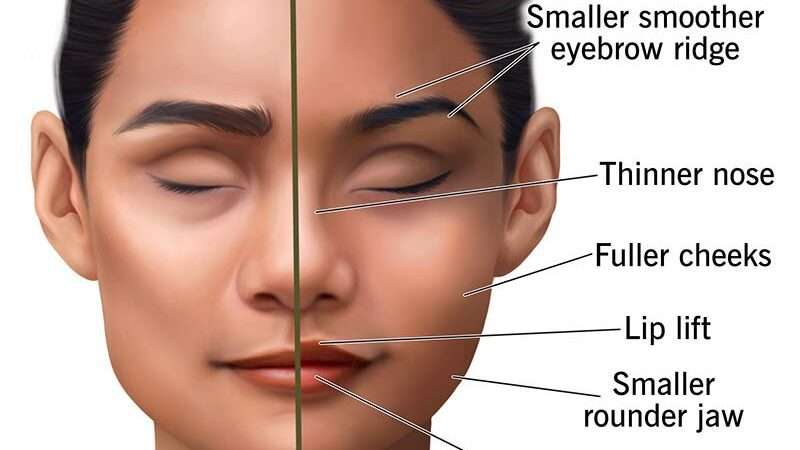Keto Diet: The Ultimate Guide
Even though it’s one of the most popular diets on the market, it can be difficult to maintain an effective ketogenic lifestyle. To get the best results from the keto diet, a lot of planning, dedication, and effort is involved. What types of food are keto-friendly? What kinds of foods should you stay away from? How can you ensure that you’re getting the right amount of proper nutrients. How can you make sure you’re doing the diet right? Keep reading to learn the answers to these questions and more. This article will cover:
- What is the keto diet?
- Who can benefit from the diet?
- How can it help you lose weight?
- What are the pros and cons of the keto diet?
- What foods should you consume?
- What foods should you cut out of your diet?
- How can you ensure you’re getting the proper nutrients?
After checking out our ultimate guide to the keto diet, you will have all the information you need to successfully adopt the diet into your lifestyle and make a major change that will benefit your health and help you reach your fitness goals.
What is the keto diet?
For starters, what exactly is the keto diet? The keto diet, which is short for ketogenic, is a diet comprised of 80% fat, less than 5% carbohydrates, and 15% to 20% of protein. A typical macronutrient distribution consists of 20% to 35% protein, 45% to 65% carbohydrates, and 10% to 35% fat. As you can see, this is a pretty drastic change from the recommended calorie distribution.
How does the keto diet help people lose weight?
Our bodies operate on glucose, which is created when carbohydrates are broken down. This is the body’s preferred way of creating energy. However, when you cut down on carbohydrates, your body will begin to search for other sources of energy. Without carbohydrates to burn, the body will target fat. As your blood sugar drops from a reduction in carbohydrates, fat will be released from your cells and fill the liver. The liver will, in turn, transform the far into ketone bodies. Your body will use the ketone bodies as a substitute for energy production.
In other words, the keto diet is a way of tricking your body into burning fat for energy instead of burning carbohydrates. This is made possible by consuming very little carbs and very high amounts of fat.
What types of keto diets are there?
There are four types of the ketogenic diet. They are as follows:
The Cyclical Ketogenic Diet (CKD): This diet is a cycle of ketogenic meal periods followed by high-carb meal periods. For instance, an individual on this form of the keto diet can consume four days worth of low-carb foods and three days worth of high-carb foods. This process is known as “high carb refeeding”.
The High-Protein Ketogenic Diet: This particular form of the ketogenic diet is just like the standard ketogenic diet that most individuals use, except it involves consuming more protein. The calorie distribution often looks like 60% fat, 35% protein, and 5% carbohydrates.
The Standard Ketogenic Diet: This is the most common form of the ketogenic diet that people adopt into their lifestyles. The diet revolves around an extremely low carbohydrate consumption rate, a moderate amount of protein, and high amounts of fat. A typical calorie distribution contains 75% fat, 20% protein, and 5% carbohydrates.
The Targeted Ketogenic Diet: This diet uses carbohydrates methodically, centering them around workouts and other forms of exercise.
Who should stay away from the keto diet?
You should always let your healthcare provider know when you plan on starting a new diet, or you should speak with a nutritionist to learn what dieting options are right for you. This is especially true for those with certain medical conditions. The ketogenic diet can be tough on your body and it’s crucial to understand your body’s condition before making such a drastic change. There are certain individuals who should stay away from the keto diet entirely because the calorie distribution will cause adverse reactions to their health. These individuals include, but are not limited to:
People with gallbladder or pancreas issues: Since fat can be extremely difficult for your body to process, this may be an issue for those with gallbladder or pancreatic diseases. Play it safe and speak with a nutritionist or a healthcare provider before switching to a ketogenic diet.
Pregnant or breastfeeding women: Research for the effect of ketogenic diets on pregnant and nursing individuals is still in the preliminary stages. However, rudimentary animal models suggest that the metabolic changes that take place over the course of ketosis can have a negative effect on fetal growth and development. Pregnancy and nursing is not the right time to change dietary consumption, as nutritional deficiency and weight loss can cut down on milk production and stunt a child’s growth.
People with kidney issues: The keto diet can promote rapid changes in sodium, fluid, and potassium levels, which can have a negative effect on those who are prone to developing kidney stones and other related issues.
People with a history of disordered eating: The ketogenic diet is one of the most extreme, tough diets out there. Any diet that involves such restrictions can promote and perpetuate thoughts and habits of disordered eating.
Patients of gastrointestinal or bariatric surgery: As mentioned previously, fat is a difficult macronutrient for the body to digest. Those with a limit on digestive capabilities should avoid the ketogenic diet to steer clear of any adverse effects during the recovery process.
Again, this list is not entirely exclusive. Always speak with a nutritionist or healthcare provider before making such a drastic change to your diet.
What are the health benefits of a keto diet?
Weight Loss: The primary benefit of the ketogenic diet is weight loss. The hype for the ketogenic diet comes from the fact that you can lose a considerable amount of weight in a very short period of time. This is due to calorie limits, water loss, and appetite control.
Reduced Chances of Heart Disease: Evidence suggests that the ketogenic diet can improve triglyceride, HDL, and LDL levels, which can improve cardiovascular health altogether.
Capable of Treating Several Types of Cancer: A study conducted in 2014 revealed that a ketogenic diet was successful at reducing tumor grown, gastric cancer, brain cancer, and colon cancer. This is most likely due to the fact that the diet reduces overall calorie consumption for tumor growth.
Reduced Symptoms of Alzheimer’s Disease: The keto diet has been proven to have a positive effect on cognitive function. This is believed to be a result of the diet’s effect on mitochondrial functions as the body is provided with a different type of fuel to burn for energy.
Reduction of Seizures: The keto diet originated as a way to eliminate and reduce seizures in epileptic children.
Improved Symptoms of Parkinson’s Disease: One of the central components of Parkinson’s Disease is the overproduction of a protein called “alpha-synuclein”. Theories state that the ketogenic diet causes a breakdown of these proteins, which in turn reduces the amount of alpha-synuclein in the brain.
Reduction of Insulin Levels: A study conducted in 2017 found that the keto diet was capable of implementing glucose control and resulted in a reduction of medication usage in those with Type 2 Diabetes. Research has revealed that a low-carb diet can help to reduce A1C and improve insulin sensitivity by up to 75%.
Reduced Acne Levels: A reduction in insulin levels as well as lessened consumption of sugar and other processed foods can improve skin health.
This barely scrapes the surface of all the health benefits of the ketogenic diet. The diet is perfect for treating metabolic, cognitive, or insulin-related conditions.
What are the drawbacks of a keto diet?
Reduced Athletic Performance: If you work out regularly, you might notice that your strength and endurance has been reduced since you started the keto diet. This is because carbohydrates play a critical part in muscle growth, since they release insulin to pump protein into your muscles quickly. This helps the body build up glycogen levels for intense training and exercise, such as runs and hikes. For this reason, the keto diet is not ideal for those who are looking to build mass and exercise.
The Keto Flu: During the first week or so of going keto, the body is readjusting to such a drastic change. Since your body isn’t used to utilizing ketones for energy, you will feel flu-like symptoms at first. This is also due to the fact that the keto diet has an effect on your electrolytes. This can cause headaches, nausea, and fatigue. Again, the “keto flu” is temporary so don’t worry about feeling ill forever.
Constipation: If you’re not careful about what you’re putting into your body when you’re on the keto diet, you might find yourself feeling clogged and backed up. Since you’re cutting out whole grains and fruit from your diet, you can expect your digestive functions to be thrown off track as these are two of the largest sources of fiber. To remedy this issue, consider taking supplements and boosting your consumption of fibrous vegetables.
Nutrition Deficiencies: Like any diet that requires you to make a drastic change to your consumption of a certain macronutrient or food group, you’re bound to experience some nutritional deficiencies. This can be solved by taking supplements, consuming different foods, and adding more seasoning to your meals. Look out for:
- Sodium levels: When carbohydrate consumption is low and insulin isn’t being released, your kidneys will take in less sodium which will leave you feeling less than 100%. Solve this by seasoning your meals with a little extra salt to avoid feeling lethargic and moody.
- Potassium levels: The list of keto-friendly foods is a little on the short side, so you might find that you aren’t getting enough fruits and vegetables on this diet. This results in constipation and muscle cramps.
- Vitamin C levels: The majority of your vitamin C comes from a wide variety of fruits. Since most fruits are chock full of carbohydrates, you will find that your vitamin C levels are being reduced. To solve this and get the vitamin levels you need, eat more broccoli, cauliflower, cabbage, and brussels sprouts to make sure you’re getting the proper nutrients.
Foods to Eat
A typical ketogenic diet is comprised of:
- Fish (Salmon, Trout, Mackerel, and Tuna)
- Meats (Red meat, Steak, Ham, Sausage, Bacon, Turkey, and Chicken)
- Butter
- Eggs
- Heavy cream
- Cheese (Cheddar, Goat, Cream, Blue, and Mozzarella)
- Oils
- Nuts and Seeds (Flax seeds, Pumpkin seeds, Chia seeds, Almonds, and Walnuts)
- Low-carb green vegetables such as green vegetables, tomatoes, onions, and peppers.
Foods to Avoid
Any foods that are particularly high in carbohydrates should be limited. The foods that should be reduced or eliminated entirely on a keto diet are:
- Sugary foods
- Grains or starches
- All fruits, except for small amounts of berries
- Beans
- Legumes
- Root vegetables
- Low-fat products
- Unhealthy fats
- Alcohol
- Sugar-free diet foods
If you find yourself beginning to miss takeout and eating out, you should consider checking out a keto meal delivery service, which will allow you to find delicious meals that won’t throw you off your diet!
How can you tell if your diet is working?
Here are some signs that you’re in ketosis:
- A change in breath. Some report having “fruity” breath.
- A reduction in sugar and starch cravings.
- An increase in focus and cognitive function.
- Stabilization in terms of energy levels.
Once you’re in ketosis, it’s especially important to make sure you’re sticking to your diet. A minor tip in your calorie distribution scale can knock your diet out of orbit and throw a wrench in your results!
Considering how much work goes into putting your body into ketosis and maintaining it in the first place, no indulgence is worth getting knocked off the wagon.
Adopting a ketogenic diet into your lifestyle can be an excellent way to improve your metabolic health. It’s not ideal for those with certain medical conditions or those who wish to gain muscle. Like all diets, if you remain consistent, you will get results.




